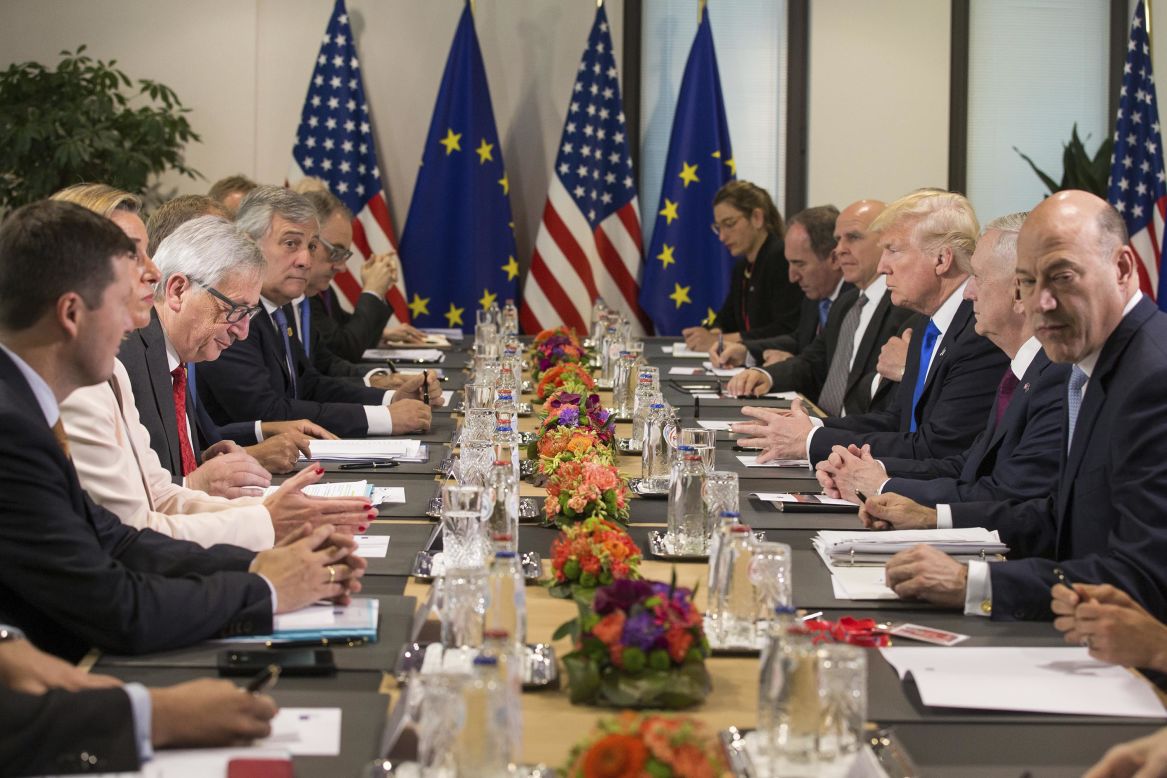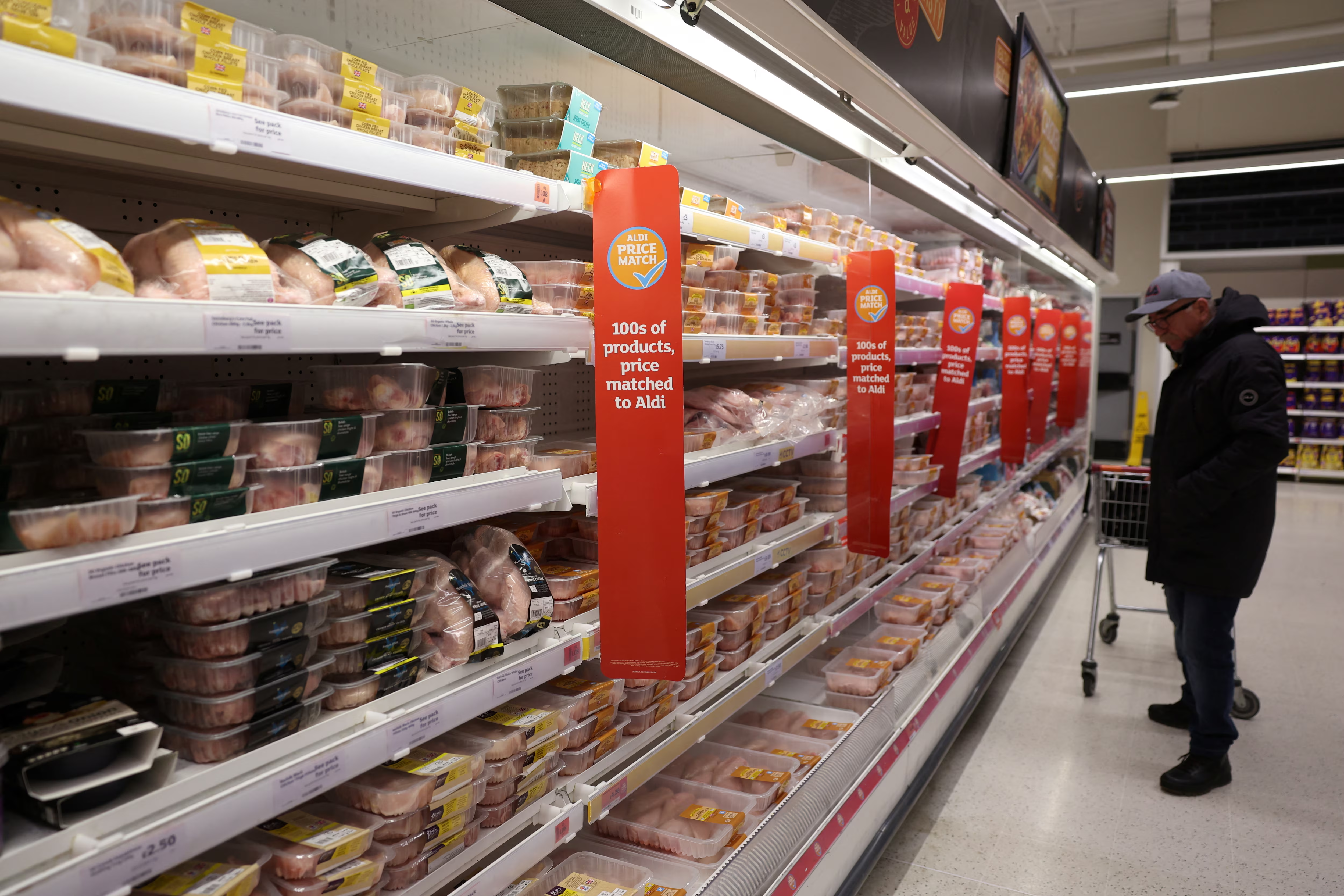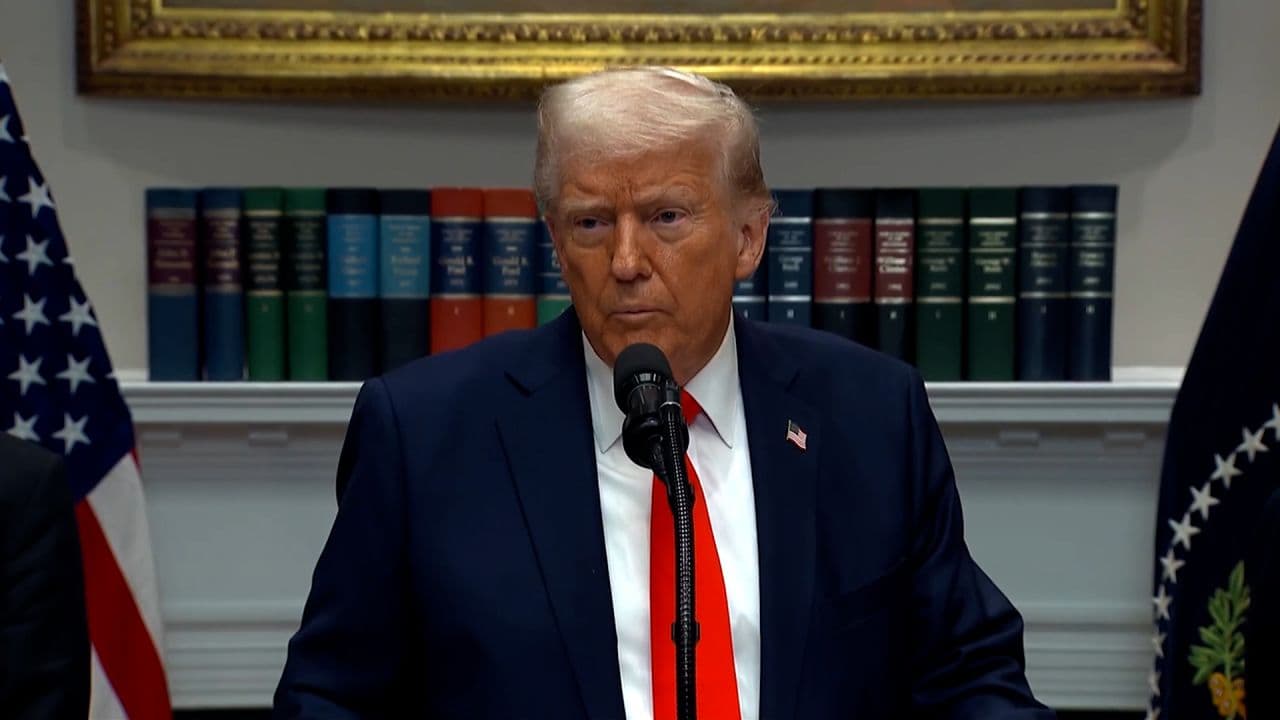Trump"s New Tariff Strategy Targets Everyday Goods
In a shocking escalation of his aggressive trade policies, President Donald Trump has threatened to impose a staggering 17% tariff on food and farm produce exports from Europe. This move, which would affect beloved items like Belgian chocolate and Italian olive oil, is not just a political maneuver; it risks exacerbating economic inequality and pushing essential goods out of reach for American families. As reported by the Financial Times, the President"s threats were delivered during a high-stakes meeting with European Union officials, signalling a hardline stance that prioritizes political posturing over the welfare of everyday consumers.
Impact on American Households
These proposed tariffs are not just numbers on a spreadsheet; they translate directly into higher prices at grocery stores across the nation. American families, already grappling with rising costs of living, will bear the brunt of this economic aggression. According to Harvard Law experts, such tariffs can lead to inflationary pressures that disproportionately affect low-income families, further widening the wealth gap.

President Trump"s first foreign trip | CNN Politics
EU"s Preparedness for Retaliation
The European Union, while still pursuing a negotiated solution, has clearly stated its readiness for a trade war. EU trade spokesperson Olof Gill emphasized that the bloc would retaliate with tariffs on American goods, ranging from Bourbon to Boeing 747s. This tit-for-tat dynamic is a dangerous game that threatens to spiral into an all-out trade conflict. As noted by Columbia Business School, such conflicts could destabilize global markets and hurt the American economy in the long run.
Long-Term Consequences of Tariff Policies
Trump"s tariffs are not merely a short-term tactic; they represent a broader economic philosophy that undermines international cooperation. As the administration prepares to roll out permanent tariffs of up to 70% after July 9, the implications for U.S. foreign relations and domestic economic stability cannot be overstated. Economists warn that these aggressive measures could lead to a recession, impacting the very workers Trump claims to support. The negative ripple effects on job markets and consumer spending will be felt long after these tariffs are enacted.

UK grocery inflation higher again as countdown to Christmas ...
Workers" Rights and Economic Justice at Stake
In the shadow of these tariff threats lies a critical issue: workers" rights and economic justice. While Trump touts these tariffs as a means to protect American jobs, they could actually harm the very workers he claims to defend. The manufacturing and agricultural sectors, which are already vulnerable, may suffer job losses as companies struggle to adapt to higher import costs. The need for comprehensive workers" rights protections has never been more urgent, as economic policies continue to benefit the wealthy elite while leaving marginalized communities behind.







![[Video] Gunfire between Iraqi security forces and Sadr militias in Baghdad](/_next/image?url=%2Fapi%2Fimage%2Fthumbnails%2Fthumbnail-1768343508874-4redb-thumbnail.jpg&w=3840&q=75)
